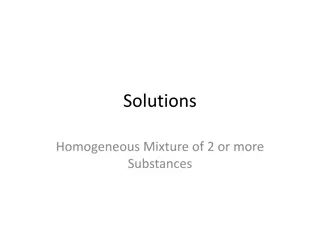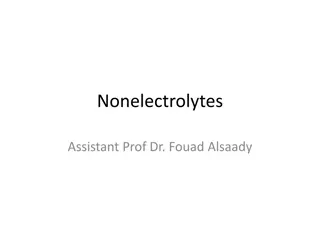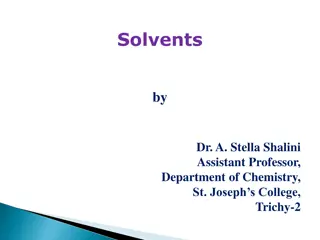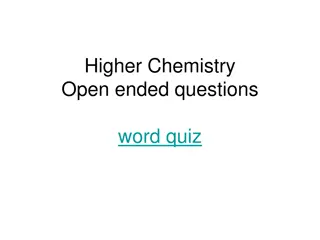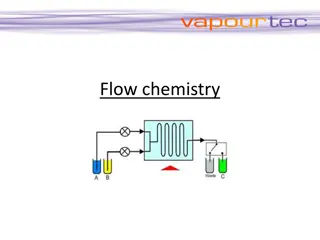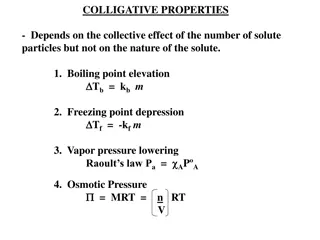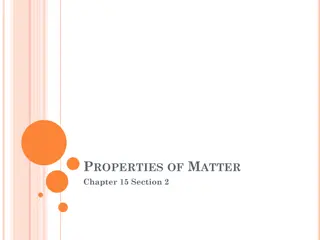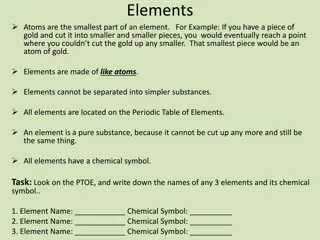Understanding Colligative Properties in Chemistry
Colligative properties in chemistry depend on the amount and type of solute particles added to a sample, as well as the intermolecular forces at play. They include vapor pressure, boiling point elevation, and freezing point depression. Vapor pressure is the pressure exerted by a vapor on its surroundings, influenced by the strength of particle attractions. Boiling point elevation and freezing point depression occur due to the interactions between solute and solvent particles, affecting the phase transitions of a solution.
Download Presentation

Please find below an Image/Link to download the presentation.
The content on the website is provided AS IS for your information and personal use only. It may not be sold, licensed, or shared on other websites without obtaining consent from the author. Download presentation by click this link. If you encounter any issues during the download, it is possible that the publisher has removed the file from their server.
E N D
Presentation Transcript
WHAT ARE COLLIGATIVE PROPERTIES? These properties depend on the amount of solute particles that have been added to the sample They also depend on the type of particle added to the sample (Ionic or molecular) and type of intermolecular forces at play (Hydrogen bonding, London Dispersion Forces etc) 3 of these properties exist
WHAT IS VAPOR PRESSURE? Pressure exerted by a vapor on its surroundings Created as a liquid gains energy from its environment and converts from a liquid to a vapor and evaporates Occurs when a liquid is below its boiling point If you have a low vapor pressure its because you have strong attractions between the particles in your sample of matter (ionic, hydrogen bonding) and you will NOT evaporate quickly at low temperatures. If you have a high vapor pressure you do NO T have strong attractions between the particles of the sample, and you will evaporate quickly at a low temperatures. Normal boiling points occur at standard pressure (1 atm, 760 mmHg, 101.3 kPa) Ionic Solutes will lower the vapor pressure of a liquid much more than a molecular solute because of attractions between solute and solvent
2. BOILING POINT ELEVATION Phenomenon where a solute increases the boiling point of a liquid due to attractions between the solute and solvent particles Happens because the solute will lower the vapor pressure of the liquid, and so it will require more energy to break the attractions between the solvent and solute particles in the mixture Once the attractions between solute and solvent have been broken, then it is possible for the solvent particles to break free from attractions and leave as a vapor/gas Ionic solutes have a greater effect than molecular, and the more moles of solute that are present, the greater the effect will be on elevation of the boiling point
3. FREEZING POINT DEPRESSION Phenomenon where a solute lowers the freezing point of a solvent due to the attractions between the two substances In this case, the dissolved solute particles disrupt the organization of the solvent into a solid particle as it approaches its freezing point. The solute particles get in the way It is because of this that it takes longer to freeze the solvent More energy has to be lost so that the solute particles fall out of place and stop getting in the way This is why salt is placed on roads and anti-freeze is placed in a car radiator Ionic solutes have a greater effect, and more moles of a substance will also increase the effect






